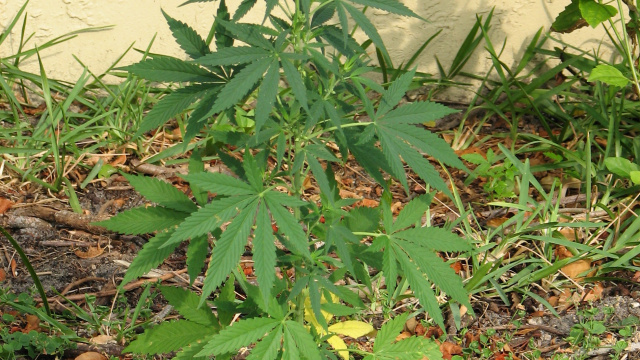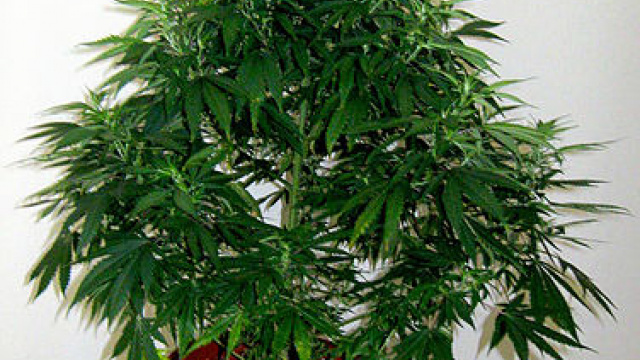 California Supreme Court Rules Cities and Counties Can Use Zoning to Ban Pot Shops
California Supreme Court Rules Cities and Counties Can Use Zoning to Ban Pot Shops
The state Supreme Court decisively ruled Monday that cities and counties have the right to ban medical marijuana dispensaries from operating within their territory, but leading activists say their fight for easy access is not over.
“This is pretty much the end of the road, unless the state Legislature changes how much it allows the city to regulate,” said J. David Nick, who argued the dispensaries’ position in front of the high court and represents a few dispensaries in the Coachella Valley. He does not anticipate any sort of appeal. “You’re going to see some very specific legislation to address the decision of the court.”
The Supreme Court ruled 7-0 in favor of Riverside, which took the Inland Empire Patients Health and Wellness Center to court after it opened in defiance of that city’s ordinance banning dispensaries in 2009.
Since first filing a complaint the following year, Riverside has prevailed at the trial and appellate levels, but judges across the state have been handing down contradictory opinions on whether local governments could outlaw storefront dispensaries under California’s 1996 voter-approved medical marijuana act, the nation’s first.
The decision written by Justice Marvin. R. Baxter says nothing in the Compassionate Use Act of 1996 or the Medical Marijuana Program adopted by the state in 2004 overrode cities’ and counties’ zoning power, up to and including prohibition of storefront pot shops.
“Of course, nothing prevents future efforts by the Legislature, or by the People, to adopt a different approach,” the 38-page opinion concluded. “In the meantime, however, we must conclude that Riverside’s ordinances are not preempted by state law.” A concurring opinion was submitted by Justice Goodwin Liu.
Lanny Swerdlow of Whitewater has been a longtime medical marijuana activist in the Coachella Valley, and is the founder and a board member of the Inland Empire dispensary at the heart of the Supreme Court case. He agreed the fight now must return to the public arena, particularly the Legislature.
“We’re going to have to get better organized and work with our legislators to get new bills passed, because the courts have told us that the collective idea the Legislature came up with isn’t going to work,” he said.
That process has already started, he said, with one bill putting medical marijuana regulation under the state Department of Alcoholic Beverage Control.
Attorney Joseph Rhea, who represents open and closed dispensaries in Palm Springs, plus the shuttered Rancho Mirage Safe Access Wellness Center, said the open shops he represents will now close.
“I think the lawyers have done what they can here,” Rhea said.
Rancho Mirage City Attorney Steve Quintanilla said the ruling appears to reach beyond the issue of dispensaries by indicating there’s nothing in state law to stop cities from barring medical marijuana collectives and cooperatives, even if they distribute the drug to members without a storefront, as well as any kind of cultivation.
“I read the the part about collectives and thought, wow, they’re going farther than I thought,” he said. “Then I saw the section about cultivation and said, ‘Oh my God, they’re going even farther.’ ” He would not advise any of his cities to go that far, he said.
Rancho Mirage was the Coachella Valley city most affected by the crossfire of conflicting opinion on the issue, with its dispensary ban ruled invalid by a Riverside County Superior Court judge in 2011. The city appealed the ruling, which had been on hold since the Supreme Court first agreed to hear the Riverside case in January 2012.
Quintanilla, also the city attorney for Desert Hot Springs and deputy city attorney for Cathedral City, said the decision settles seven lawsuits pitting his cities against dispensaries trying to set up shop.
Palm Springs is the only city in Riverside County that allows limited dispensary operations. It holds the cap for such businesses to three, with plans to offer a fourth permit on hold.
The Supreme Court decision validates its efforts to close down more than a dozen illegal shops over the past several months, said City Attorney Doug Holland.
Since December, the city has been trying to close those collectives operating without a license by issuing them notices and fines for thousands of dollars.
So far, 12 dispensaries have closed. The city, though, is still battling with five operators – four of which have either preliminary or permanent injunction orders to close. The city has a court hearing soon on the fifth dispensary.
“We feel very confident that, based on the Supreme Court decision, there’s no room for these dispensaries … to argue that they have any right,” Holland said.
The argument used by illegal dispensaries is that state law – which allows the use of marijuana to people with a doctor’s prescription – pre-empts local law and gives them the ability to operate.
“The Supreme Court clearly said, ‘No, that’s not the case,’ ” Holland said.
The city will continue trying to close the remaining five, he said, which could eventually come to criminal charges if civil methods don’t work.
“Now we will also be looking at pushing our criminal remedies, which could be, in addition to fines, it could be jail time,” said Holland.
“These are guys that somehow seem to think they are above the law. The Supreme Court says, ‘No, they are not,’ ” he said.
According to the Weed-Maps.com website that shows dispensary locations across the valley, there are fewer dispensaries listed than a few months ago, but more delivery services.
The city is currently addressing only “bricks and mortar” operations, Holland said.
But he added that the district attorney and local law enforcement agencies could eventually decide to look at whether the delivery operations are being consistent with the Compassionate Use Act.
Julie Smith is a volunteer at C.C.O.C, one of the illegal dispensaries still open in Palm Springs. She said she didn’t have a problem with the court’s ruling because the decision should be made by individual cities, maybe through a vote of the people.
But there’s already a shortage of legal dispensaries between local bans and federal crackdowns, she said, which has helped C.C.O.C.’s membership grow to about 3,000.
“We’ve got people coming in from Riverside, Blythe, Arizona, San Diego, because all the ones in San Diego are being shut down,” she said.
C.C.O.C., 650 S. Oleander Road, is fighting Palm Springs’ efforts to close them down because “the city isn’t being responsible with how they’ve decided which stores do get the permit and those that don’t,” she said.
The city is choosing dispensaries in a way that lowers competition and increases prices, she said.
There is nothing in the court’s ruling stopping cities from allowing dispensaries to come in, and while the legal pressure has been on Cathedral City and Rancho Mirage recently, new slates of city council members have come in to cities farther east.
Indio Mayor Elaine Holmes said she’s never dealt with the issue in her 21/2 years on the council, though she remembers the issue being discussed in City Hall before she was elected.
Before taking a stand for or against allowing dispensaries in the city, “I’d have to see it on a case-by-case basis,” she said. “I’d need to know about the location, and a lot of other things. But I try to keep an open mind.”
Palm Desert Mayor Jan Harnik was elected to that city’s council at about the same time, after the city dealt with a dispensary on El Paseo.
“If anyone can show me how medical marijuana helps people who are really in pain, then I’m all for it,” she said. “But in that case, it should be through a pharmacy.”
Marijuana’s status as a Schedule 1 drug under federal law, along with heroin and cocaine, makes that impossible.
Rick Pantele is a representative of C.A.P.S., one of the three legally permitted dispensaries in Palm Springs. With the recent voter-approved legalization of marijuana in Colorado and Washington, he foresees the drug being legal nationwide in the next five to 10 years.
The momentum is headed that way, he said, even in California, “but this doesn’t help that at all,” he said.
Desert Sun reporter Xochitl Pena contributed.
Source: Desert Dispatch, The (Victorville, CA)
Copyright: 2013 Freedom Communications, Inc.
Contact: [email protected]
Website: http://www.desertdispatch.com/
Author: Blake Herzog



Leave a Reply